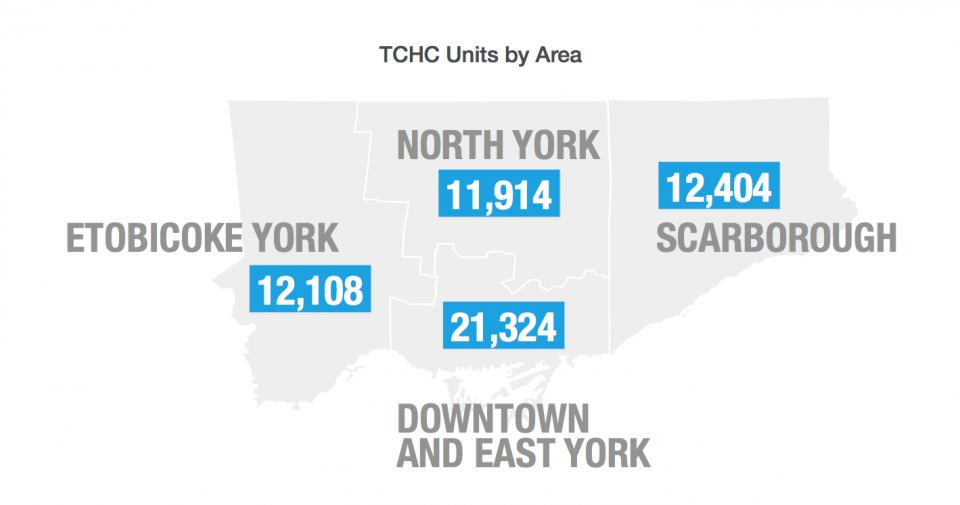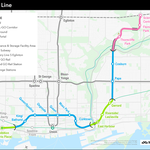This year, 13 residents of Toronto Community Housing (TCHC) properties are helping shape the future of TCHC and Toronto's non-profit housing sector. Active since February of this year, the City's First Resident Advisory Panel (RAP) is tasked with creating a plan to implement the recommendations of 2016's Tenants First Report, aimed at restructuring TCHC to provide a more sustainable and tenant-focused approach to delivering housing.
As North America's second-largest provider of subsidized housing (behind only the New York City Housing Authority), the City of Toronto owns over 58,000 units through TCHC, with a portfolio of over 2,200 buildings. Facing a repairs backlog of over $2 billion, as well as chronic operating deficits and a record waitlist, the City's underfunded housing agency is set to be decentralized, with some of the housing stock divvied up between smaller community-based organizations.
Driven by chronic funding shortages, a preliminary blueprint for restructuring TCHC was provided by the Mayor's Task Force on Affordable Housing, which produced a 2016 report outlining 29 specific recommendations to the City. The Task Force report formed the basis of the new Tenants First framework, which was approved by City Council in July of last year.
 Looking west towards Regent Park in early March, image by UT Forum contributor Jasonzed
Looking west towards Regent Park in early March, image by UT Forum contributor Jasonzed
Uncoupling TCHC's affordable housing portfolio from the City's budgetary constraints, (it, along with other City agencies, faced a 2.6% percent funding cut in Mayor Tory's 2016 austerity budget), the decentralization of affordable housing management is meant to enable a more flexible approach to financing and operation. Removed from the City's balance sheet, the restructured TCHC itself would have the same legal status as any of Toronto's 240 other non-profit housing corporations.
While many of the changes to the TCHC portfolio—which is valued at over $9 billion—involve complex legal restructuring, the first-hand experiences of the Resident Advisory Panel will play a key role in shaping the scope of the changes. in fact, the creation of the RAP was one of the key recommendations provided in the Task Force report, which called for a closer integration between affordable housing policy and the lived experiences of tenants.
In terms of management and repair, the more decentralized framework now taking shape is also in part driven by the impetus to give residents a stronger voice. According to City Council Housing Advocate and Ward 18 Councillor Ana Bailão, "[t]he Resident Advisory Panel will bring an important perspective to the Tenants First project team by sharing their lived experience, knowledge and skills to provide advice on the implementation plan."
 A breakdown of the City's TCHC units by area, image via City of Toronto
A breakdown of the City's TCHC units by area, image via City of Toronto
For 20-year TCHC resident and panel member Ingrid Palmer, "it is great to participate in an authentic, collective dialogue, while establishing platforms for unheard voices." As one of 13 panelists chosen from a pool of over 200 applications, Palmer expressed enthusiasm about "representing the powerful potential of TCHC residents."
According to the City, "[t]he input received from residents, advocates, community partners and experts from the housing sector will inform an upcoming report to Executive Committee. This report, planned for June, will include the first phase of a long-term plan for implementing the recommendations from the Tenants First Report."
We will keep you updated as more information becomes available, and the City of Toronto's new affordable housing strategy continues to take shape. In the meantime, more information about the City's Tenants First Project is available here.

 1K
1K 









































